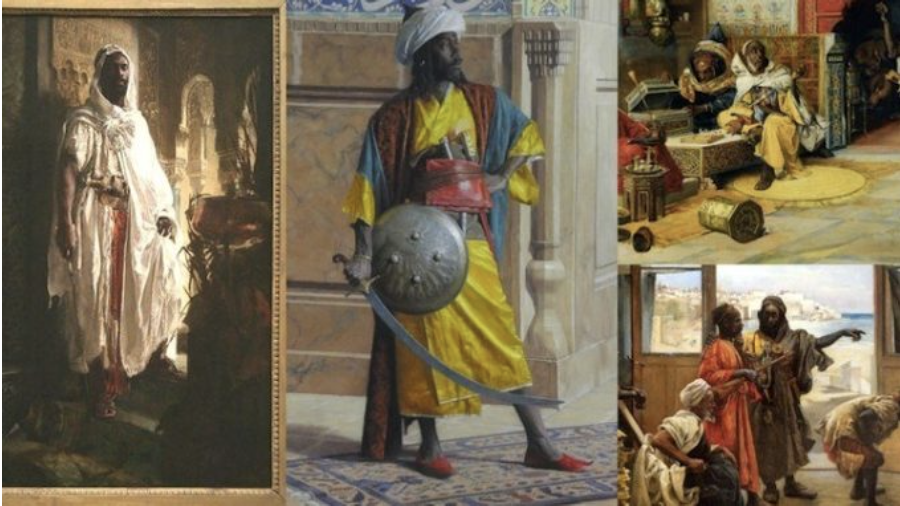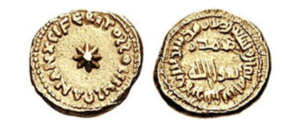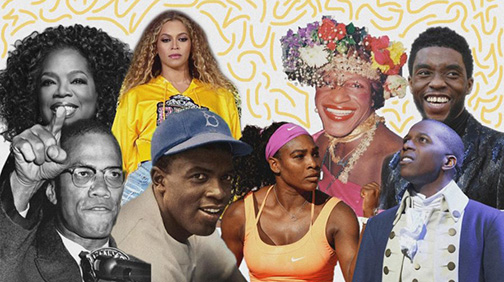AFRICA THOUGHT
– News features, commentaries, analyses, interviews & Op-ed.
Black History Special Essay: How An African Cavalry From West Africa ‘Conquered’ Europe

By Ron Mracky/Exclusive to The African Times/USA
April 06, 711 AD (AH 92), was the date an African military cavalry of over 3,000 trained, equipped and in command formations, provided by the Empires of Ghana and Mali were placed under the command of an Islamic military, General Tariq ibn-Ziyad crossed the Straits of Gibraltar entering the Iberian Peninsula – Spain and Portugal. General Tariq is generally identified as being a Berber – a black man.
A European scholar remembered the Islam/African conquest in this way:
… their faces black as pitch, their eyes shone like burning candles, their horses were swift as leopards and the riders fiercer than a wolf in a sheepfold at night .
. . . The noble Goths [the German rulers of Spain to whom King Roderick belonged were broken in an hour, quicker than tongue can tell.
The original 3,000 cavalry was composed by aristocratic family members with typically high education and recent converts to Islam. They spoke , wrote and read Arabic , and their native African language. Most were bi-lingual, plus as centuries passed many have become speakers of the Christian Latin.
Within several years the entire Iberian Peninsula was under the African Islamist administration, with most of the government posts held by members of the original 3,000 Africans.

Their administration was well secured to a point that in 716 AD they issued new gold coins carrying a bi-lingual Arabic–Latin dinar.
By few more years and continuing over the period of 800 years or eight centuries the Christians and Jews who were the main population of the Mediterranean Africa came back to re-exile Islamic Hispaniola. This strengthened the political, military and trade position of the Hispaniola more specifically the Africans – they, as stated became the primary bureaucracy of Islamic Hispaniola and with it their trade and diplomatic relationships started to influence and penetrate the rest of the then Christian Europe and its highest hierarchy – the Roman Christian Popes during the African Islamic presence in Hispaniola were black! – Victor (183-203 A.D.), Gelasius (492-496 A.D.), and Mechiades or Militiades (311-314 A.D.). All three became Saints of the Roman Catholic religion.
It was this period that many scholars have attributed to the historical myth that “The Blacks Governed Europe” – this is not the case, however they were in government and leadership positions of many of the Christian-Roman lands and the leading families of Europe – from South to the North.
The period of the African Islamic hold coincided with Europe’s Dark Ages – period of time between the fall of Rome (500 AD), to the beginning of the Renaissance (1400 AD). During this time, Western Europe was under constant struggle due to issues from within. Mainly, the decline of education, the unrest caused by the barbarians, and the lack of a stable economy – with the Black Plaques devastating Europe, except the Africa Hispanola.
The legacy of the 800 years continues to live with us today – most of the words that art with ‘al’ – such as alcohol, and alchemy were brought to us by Islamic Africans, eating with knife and fork was introduced by the Islamic African, even in the areas of hygiene, medicine, education, and public administration.
The Africans who dominated southwest Europe during the Middle Ages for 700 years (711-1492 A.D.) Islamic Africans ruled southwest Europe centuries and were believed to be ‘darkened’ whites in the area known as Portugal, which was “the first example of a Negrito (African) presence in Europe.
It is equally instructive to note the contributions of the Moorish (Black) advances in mathematics, astronomy, art, and agriculture that helped propel Europe out of the Dark Ages and into the Renaissance.”
”Although generations of Spanish rulers have tried to expunge this era from the historical record, recent archeology and scholarship now shed fresh light on the Moors (Blacks) who flourished in Al-Andalus for more than 700 years – from 711 AD until 1492”, according to historian Basil Davidson who wrote that there were no lands in the eight century more admired by its neighbors, or more confortable to live in than a rich African civilization which took place in Spain.
Newsletter
Subscribe to our bi-weekly newsletter and be the first to Receive New Updates.
Black History Month, (February) also known as African American History Month, is the yearly observance and celebration in the United States and Canada the achievements and contributions of Black people in the evolution of the United States of America.
Your comments, ideas, and thoughts matter.
Drop us a line:
